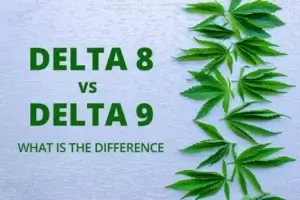Welcome to Togo, a sliver of vibrant life nestled in West Africa, brimming with rich traditions and a cultural landscape as diverse as its flora and fauna. Picture this: bustling markets, colorful festivals, and the warm, welcoming smiles of the Togolese people. Now, let’s introduce cannabis into this vivid picture. Globally, cannabis has been a hot topic, a plant that’s as controversial as it is popular. In Togo, like many other places, it’s a subject that weaves through legal, social, and cultural narratives. But how does this global conversation resonate in the streets and villages of Togo? Let’s find out.
Legal Status of Cannabis in Togo
When it comes to the legal side of things, Togo plays it by the book – and quite a strict book at that. Cannabis is illegal in Togo, both for recreational and medical use. The government’s stance is clear: possession, cultivation, and trafficking of cannabis are met with serious legal consequences. This isn’t just on paper; law enforcement agencies actively work to uphold these laws. Think of Togolese law enforcement as diligent guards of the law, ensuring that cannabis remains off the streets and out of the hands of the public.
But, like many laws, the ones governing cannabis in Togo have evolved over time. They reflect a mix of indigenous perspectives, colonial influences, and contemporary global drug policies. To understand the current laws, it’s important to consider this historical tapestry – a story that’s as intricate as Togo’s famous kente cloth.
Historical Context and Cultural Perceptions
The story of cannabis in Togo isn’t just a legal one; it’s deeply rooted in the nation’s history and culture. Traditionally, cannabis wasn’t always seen through the lens of legality. In fact, in some communities, it played a role in traditional practices and natural medicine. It’s like an old tree in the village square, once a gathering place for many, now viewed with a bit of caution.
Fast forward to modern times, and the perception of cannabis in Togolese society varies. In urban areas, like the bustling capital Lomé, cannabis is often associated with youth culture and music scenes, similar to global trends. However, in the rural heartlands, where traditions hold strong sway, it’s viewed with more skepticism.
Interestingly, when you compare cannabis to other substances in Togo, such as alcohol or tobacco, it sits in its own unique spot. Alcohol, for instance, is part of social and cultural rituals, while cannabis doesn’t enjoy the same level of acceptance or integration into daily life.
Economic Impact of Cannabis
When it comes to the economy, cannabis in Togo is like a hidden chapter in an otherwise well-read book. Officially, due to its illegal status, cannabis doesn’t contribute to the formal economy. However, there’s an undeniable presence of an illicit market. Picture this: hidden away from the main streets, in the shadows of the informal economy, cannabis trade happens in whispers and hushed conversations. It’s a bit like an underground river, flowing unseen but ever-present.
Now, let’s imagine a scenario where Togo changes its stance on cannabis. The possibilities are intriguing – new markets, potential tourism boosts, job creation, and a fresh source of revenue for the government. Think of it as planting a new seed in Togo’s economic soil, one that could sprout into a variety of opportunities. However, for now, these remain speculative thoughts, as the legal barriers stand tall.
Medical Cannabis and Research
In the realm of medical cannabis, Togo is still in the early chapters. As of now, medical cannabis isn’t a part of the healthcare system. It’s like a plant not yet allowed to grow in the medicinal garden. But the global shift towards recognizing the medical benefits of cannabis has stirred some curiosity.
There’s a growing conversation, albeit a quiet one, about exploring the potential medical uses of cannabis. Imagine Togolese researchers, looking out at the global medical community, pondering the possibilities of joining in on the research and development of cannabis-based treatments. It’s a field ripe for exploration, but for now, Togo remains more of an observer than a participant in this global movement.
International Influence and Comparison
On the international stage, Togo’s approach to cannabis is somewhat cautious and conservative, akin to a careful chess player in a dynamic game. The global trend towards legalization and decriminalization of cannabis has undoubtedly sparked discussions in Togo, but these conversations are in their infancy.
Comparing Togo to its neighbors, there’s a variety of stances on cannabis. Some African countries are experimenting with legalization, especially for medical and industrial purposes, while others maintain strict prohibitions. Togo seems to be watching and waiting, gauging the outcomes of these varied approaches.
Togo’s position on cannabis is also influenced by international drug policy agreements. Being part of the global community, Togo navigates these waters carefully, balancing its own societal norms with international expectations and treaties.
Future Perspectives
Peering into the future of cannabis in Togo is like trying to predict the path of a river – it could take many turns. Currently, with the strict legal framework and the conservative societal attitudes, significant changes might seem distant. However, the winds of change are blowing across the globe, and they could eventually reach Togo too.
Imagine a future where the discussions about cannabis, sparked by global legalization trends, start to take root in Togo. It could lead to debates in policy-making circles, possibly even resulting in a softening of laws, especially around medical cannabis. The younger generation, often more exposed to global ideas and movements, might play a pivotal role in this shift.
Additionally, as neighboring countries experiment with cannabis legalization and industrial hemp, Togo might find inspiration or cautionary tales. It’s a dynamic landscape, and Togo’s future stance on cannabis will likely be influenced by a combination of internal developments and external influences.
Our exploration of Cannabis in Togo has been a journey through the intricate layers of law, society, economy, and potential futures. It’s clear that, for now, cannabis remains a delicate topic in Togo, shrouded in legal restrictions and cultural hesitance. However, the story doesn’t end here.
The global narrative of cannabis is ever-evolving, and Togo, with its rich cultural tapestry and dynamic place in the world, may find its chapters on cannabis being rewritten in the coming years. Whether these changes will be swift or gradual, broad or limited, remains to be seen. What’s certain is that the conversation about cannabis in Togo, and how it intertwines with the nation’s legal, economic, and social fabric, will continue to be a topic of significance.






